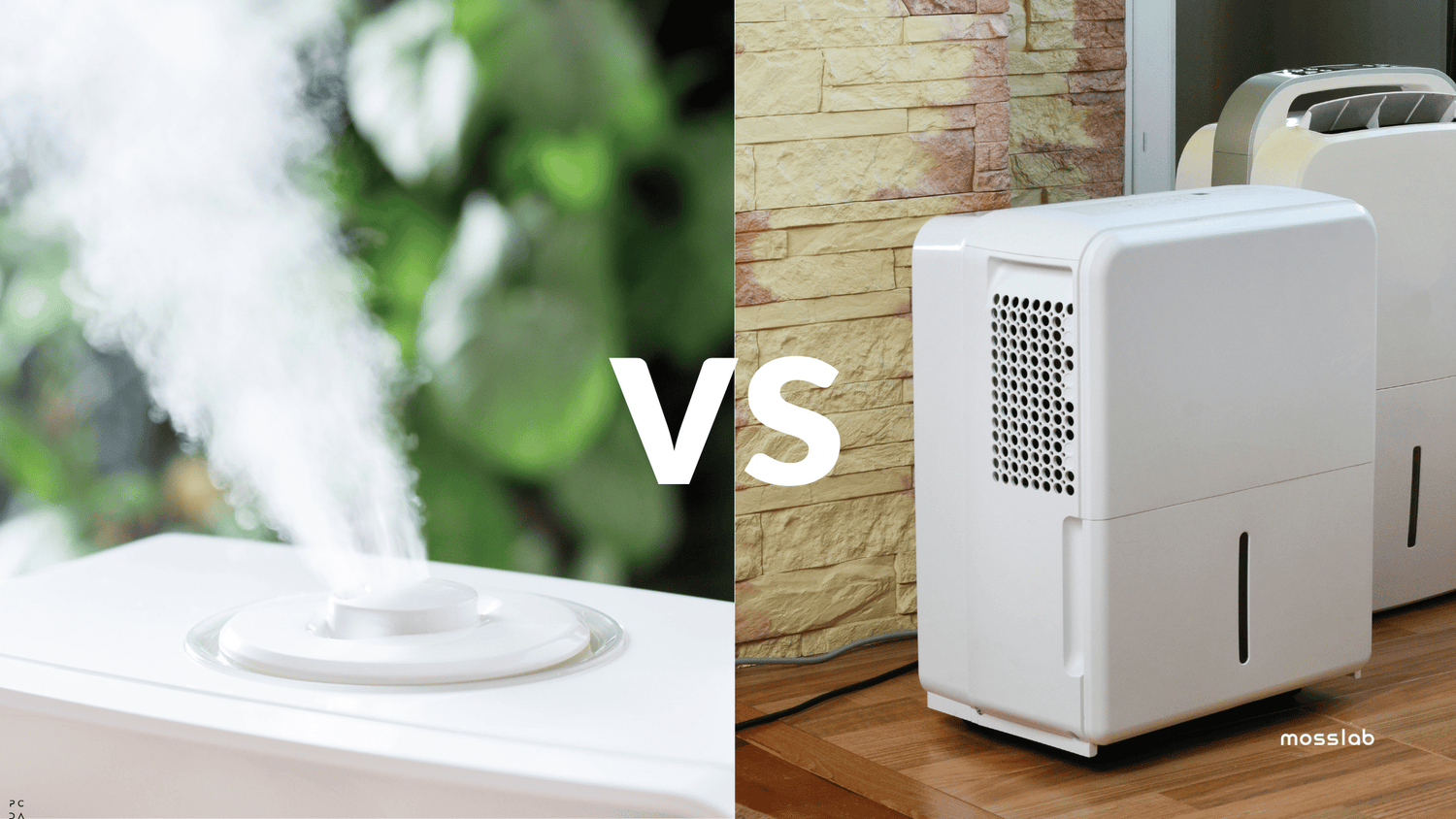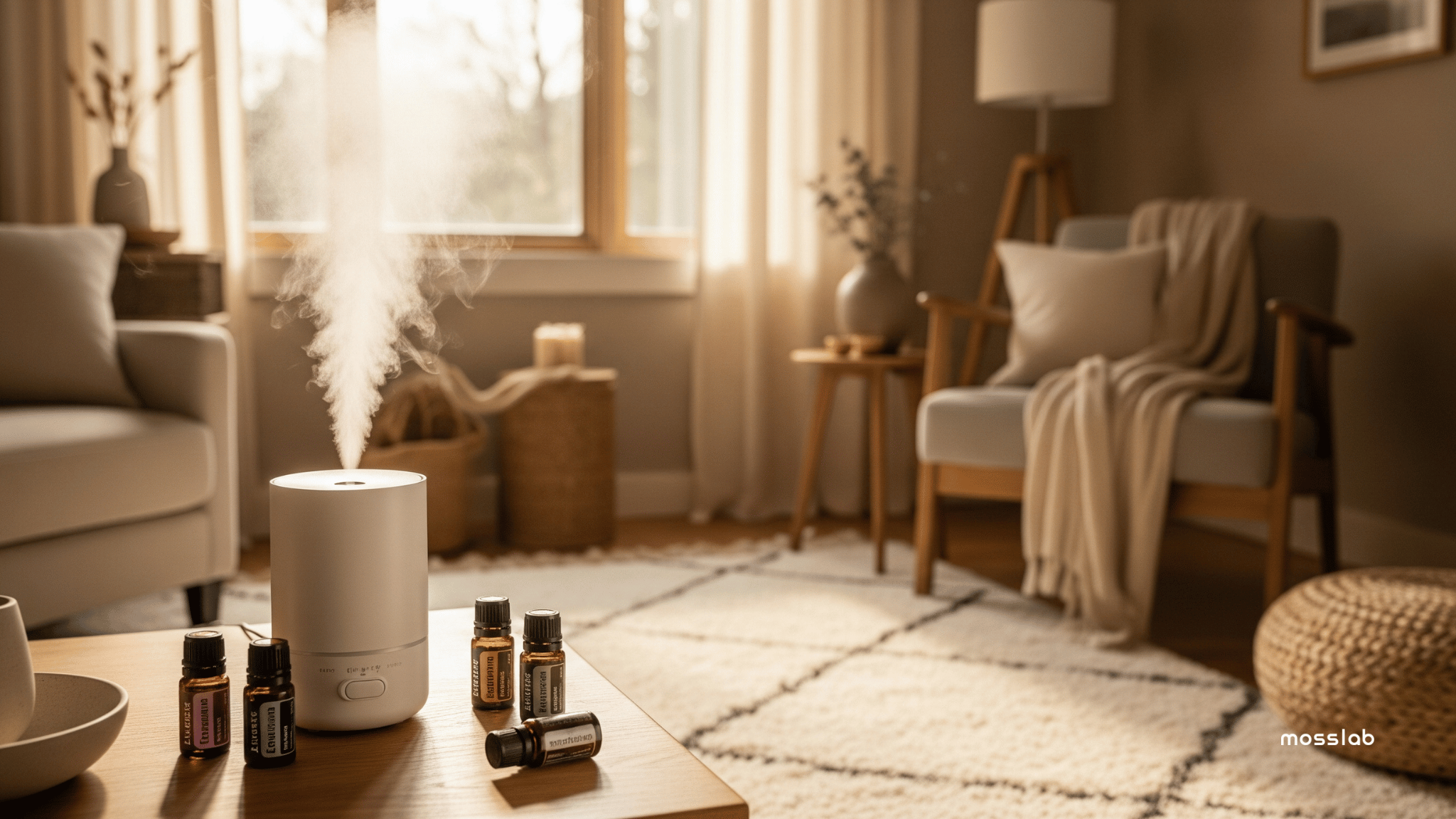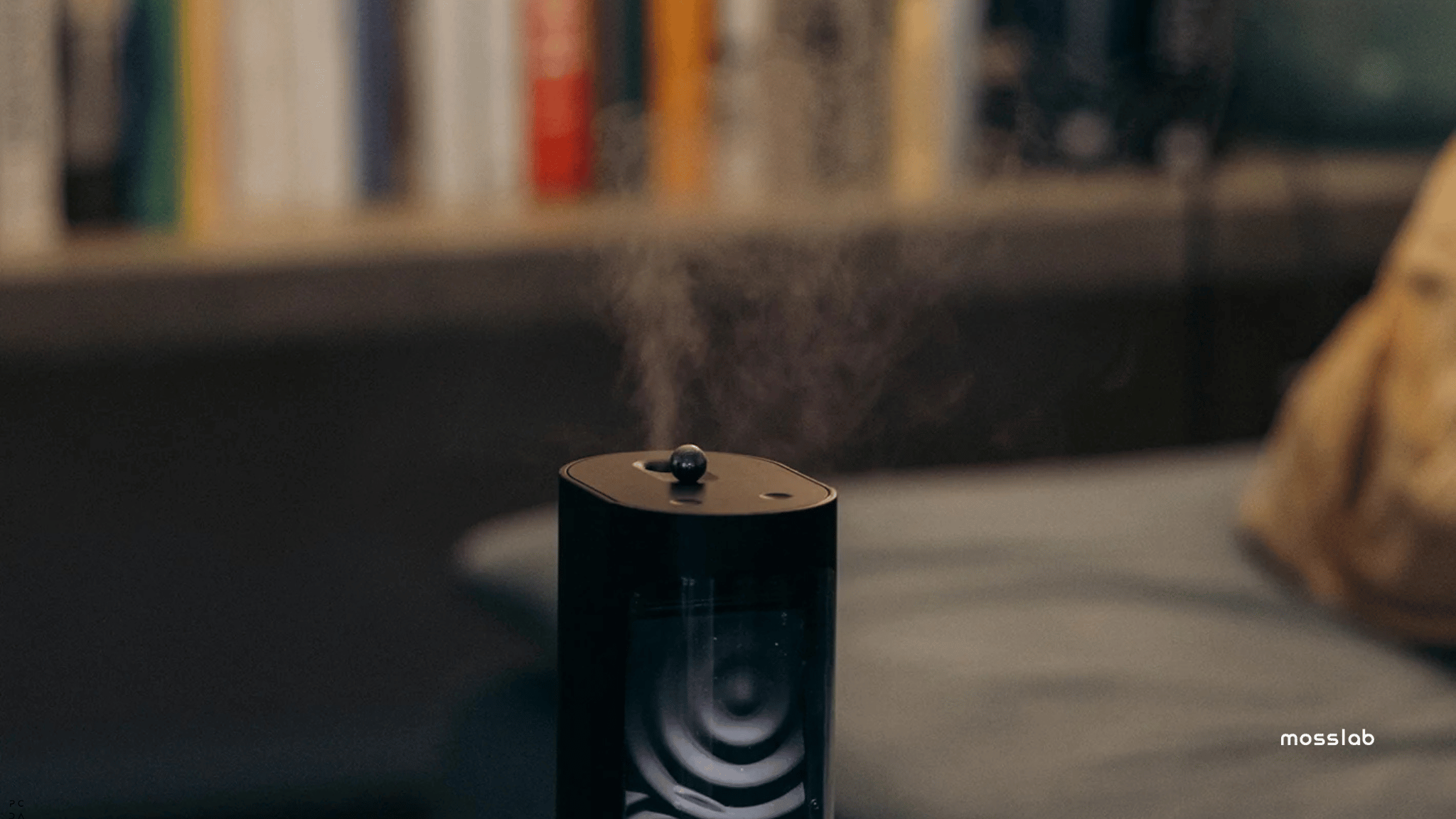Humidifiers and dehumidifiers serve opposite purposes. You'll want a humidifier to add moisture when indoor air is too dry, especially during winter. On the other hand, a dehumidifier is perfect for removing excess moisture in humid conditions, typically needed in summer, to prevent mold and mildew. Each device contributes uniquely to indoor air quality, and choosing the right one guarantees comfort and health in your home. Discover more about their benefits and which suits your space best.
Understanding the Role of Humidifiers

When indoor air feels dry, especially during winter, humidifiers can be a game changer by adding much-needed moisture to your environment.
You'll find that a humidifier is particularly useful when humidity levels dip below 30%, leaving your skin, eyes, and respiratory system craving relief. By introducing moisture into the air, you can alleviate common symptoms associated with dry indoor air, such as sore throats, nosebleeds, and headaches.
This added humidity not only soothes your mucous membranes but also helps maintain healthy airways, reducing the risk of respiratory infections.
To get the most out of your humidifier, regular maintenance is vital. Cleaning the device and using distilled water prevents mold and bacteria growth in the water reservoir.
With various types available—cool mist, warm mist, and ultrasonic—you have options to suit your needs and preferences for maintaining ideal indoor humidity levels, ensuring comfort and health throughout the season.
Exploring the Function of Dehumidifiers

While humidifiers bring relief in dry conditions, dehumidifiers tackle the opposite challenge by managing excess moisture. If you're living in a space where humidity levels exceed 60%, dehumidifiers can make a big difference. They work by cooling warm air over metal coils, causing moisture to condense into a reservoir. This process effectively reduces humidity levels, making the air more comfortable and less prone to issues like mold and mildew growth.
Controlling humidity is essential for maintaining good air quality. Too much moisture can lead to mold and mildew, which not only damage your home but can also trigger allergies and respiratory problems. By maintaining humidity levels between 30% and 50%, dehumidifiers guarantee a healthier living environment.
There are various types, including refrigerative, electronic, desiccant, and ionic membrane models, each designed to efficiently handle moisture, helping you enjoy a more comfortable and breathable indoor space.
Benefits of Using a Humidifier

Humidifiers offer numerous benefits in enhancing indoor air quality, especially in environments where humidity levels drop below 30%. They work by adding moisture in the air, which helps alleviate common issues associated with dry air, like dry skin, dry throat, and nasal congestion.
This added moisture can greatly reduce the frequency and severity of respiratory problems, such as colds and other respiratory infections, which are often exacerbated by dry conditions.
Using a humidifier consistently can also protect your home. It prevents damage to wooden furniture and structures that can crack or warp due to excessive dryness.
For those suffering from allergies or asthma, humidifiers are a true ally. By keeping your airways moist, they reduce irritants in the air, providing relief and improving your overall indoor air quality.
Particularly during the winter months, when indoor air is often drier, humidifiers can help maintain comfort and health in your living space.
Advantages of Having a Dehumidifier
Though often overlooked, a dehumidifier plays an essential role in maintaining ideal indoor air quality, especially in areas prone to high humidity. Dehumidifiers can help keep humidity levels below 60%, vital for preventing mold and mildew growth.
By reducing excess moisture, you're not only protecting your home from potential moisture damage but also enhancing its durability. This means your wood and drywall last longer, safeguarding your investment.
Moreover, dehumidifiers can help alleviate allergy symptoms by minimizing the presence of dust mites and allergens that thrive in damp conditions.
You'll notice a significant improvement in your indoor comfort as the air feels cooler and less sticky, particularly during humid summers.
Plus, regular use of a dehumidifier eliminates musty odors, leaving your home smelling fresh and inviting.
Embracing a dehumidifier transforms your living space into a healthier, more comfortable environment for you and your family.
Selecting the Right Device for Your Home
Understanding the benefits of a dehumidifier helps you appreciate the significance of selecting the right device for your home.
To guarantee ideal health and wellbeing, start by measuring your indoor humidity levels with a hygrometer. Aim for an ideal range of 30% to 50% relative humidity (RH). If your humidity levels dip below 30%, a humidifier is your best bet. It'll add necessary moisture to the air, helping alleviate dry skin, respiratory discomfort, and a higher risk of colds.
On the flip side, if your indoor humidity exceeds 60%, a dehumidifier is essential. It prevents mold growth, reduces allergens, and enhances overall comfort.
Remember, seasonal changes impact humidity; humidifiers are typically more useful during dry winter months, while dehumidifiers shine in humid summers.
Regularly monitor and adjust your devices based on humidity levels to maintain a comfortable, healthy living environment year-round.




